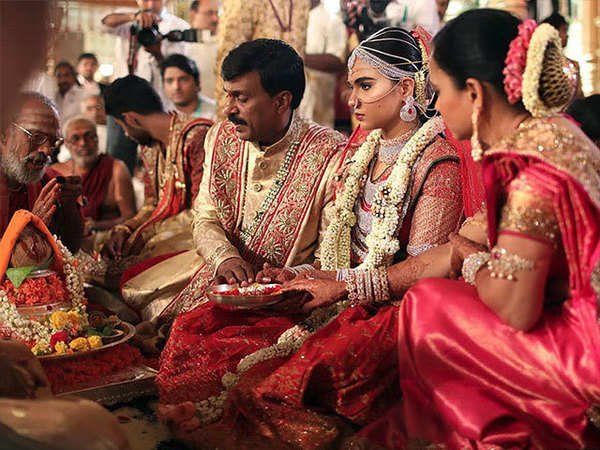Wedding gifts are tax-free, but remember to keep records to account for potential capital gains tax.
Typically, any gift valued over Rs 50,000 is taxable unless received from close relatives like a parent, sibling, or spouse. However, for wedding gifts, this rule is relaxed. Regardless of the giver’s relationship—whether relative, friend, or acquaintance—gifts received on the occasion of a wedding are tax-free. For other occasions, however, gifts from non-relatives must be declared as “Income from Other Sources” in that year’s tax return, with applicable tax paid based on your income tax slab.
“Gifts received by a groom or bride on the occasion of marriage from anyone, including from in-laws, are not taxable under Section 56(2)(x) of the Income Tax (I-T) Act,” explains Mumbai-based chartered accountant Suresh Surana.
In the context of gift tax, “specified relatives” include family members like parents, parents-in-law, spouses, and siblings. For weddings, even gifts from others not listed as close relatives remain exempt from tax.
Gifts Beyond the Wedding Day
The exemption applies not only to gifts received on the wedding day but also to those received during related ceremonies. “The exemption is for gifts received ‘on the occasion of marriage,’ not limited to the exact wedding day, provided the gift is connected to the wedding,” says Surana. However, he cautions that claiming tax-free status for gifts received over an extended period—such as several months between engagement and wedding—could lead to scrutiny. The I-T department might question if such gifts are truly related to the marriage and might challenge the exemption, potentially leading to litigation.
Chetan Chandak, director of TaxBirbal, believes that gifts linked to engagement and pre-wedding rituals should qualify as tax-exempt wedding gifts, as ceremonies often stretch over time. “It begins with the engagement and ends with the wedding or reception. Therefore, one can argue that gifts received from engagement to wedding day are part of the wedding occasion and, thus, exempt,” he suggests.
To support tax-free claims, ensure you keep records of all valuable gifts received during this period. Documentation will protect you in case of any tax inquiries. “Although interpretations may vary, keeping records like invitations, guest lists, recipient details, photos, videos, and bills for high-value gifts helps prove the connection if needed,” Chandak advises.
Record details of both cash and non-cash gifts, including the receipt dates, names of givers, and invoices. For foreign relatives, maintaining documentation like travel schedules may also help substantiate that the gift is wedding-related, Surana adds.
Wedding gifts are exempt from tax under Section 56 of the Income Tax (I-T) Act if received on the occasion of marriage, regardless of whether they are from relatives or non-relatives. This exemption applies to movable assets such as shares, securities, bullion, jewelry, archaeological collections, artworks, and digital assets. However, if the recipient later sells these assets, capital gains tax will apply based on any profit made from the sale.
For example, if financial instruments or gold received as wedding gifts are later sold at a profit, the recipient must pay capital gains tax on these gains. The applicable tax rate will depend on the asset’s holding period and type. As per Section 49(1) of the I-T Act, the acquisition cost for the recipient (new owner) will be the original cost of acquisition by the donor (previous owner), and the holding period includes the donor’s holding period. Gains on selling physical gold, for example, may be subject to long-term or short-term capital gains tax based on the duration of ownership. Gold held for over two years is subject to long-term capital gains tax at 12.5% (plus 4% cess); however, the indexation benefit to reduce tax was removed in the July 2024 budget. Gold held for under two years will incur short-term gains tax at the recipient’s income tax slab rate.
Specific capital gains rules apply for different gold-related financial products, such as exchange-traded funds (ETFs), gold funds, and sovereign gold bonds, when sold in the future. In such cases, the date of receipt, original acquisition date by the previous owner, and fair market value at the time of sale are factors in capital gains calculations.
Capital Gains Rules for Bride and Groom
Capital gains tax rules vary for the bride and groom when gifts come from in-laws. While gifts received from in-laws are tax-exempt, the income generated from them may be subject to clubbing provisions under Section 64. For instance, if a daughter-in-law receives cash from her parents-in-law and invests it, the income generated will be taxable in the parents-in-law’s name, as explained by tax expert Chetan Chandak.
